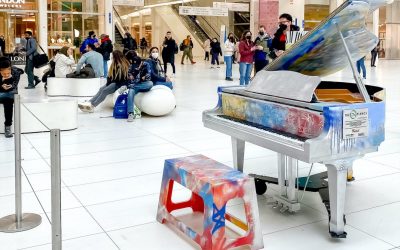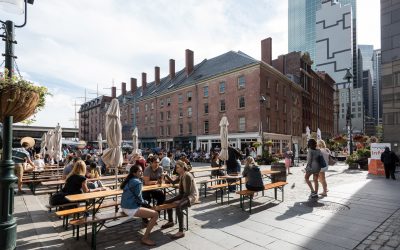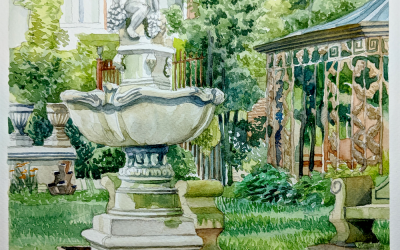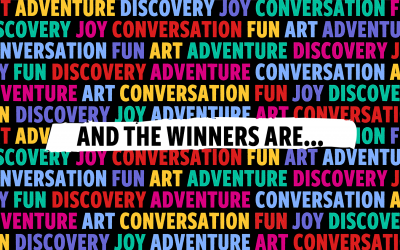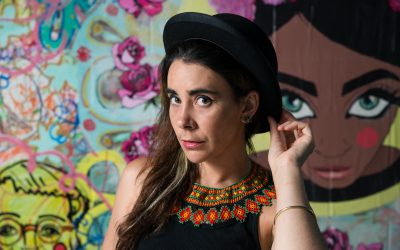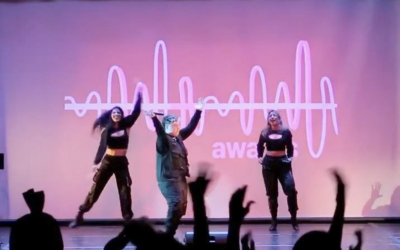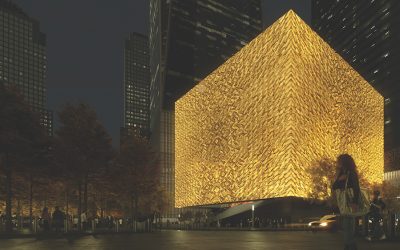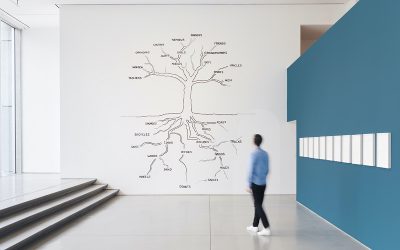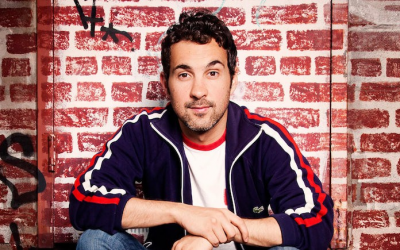If you watch a lot of television, you’ve probably heard the work of Tree Adams. Well into his second decade as an in-demand composer, Tree has provided the score of programs like Californication, Reba, Perception, Legends, and Sirens. Jan. 21 brings the return of The CW’s The 100, which Tree oversees the music for, as the show enters its third season.
But there’s plenty more to the story of Tree Adams than writing music for TV, film and video game projects. Prior to entering that world, he was signed to Atlantic Records as part of The Hatters. He continues to play live as the leader of the Tree Adams Band and a member of The Howlin’ Volts alongside childhood friend Chris Scianni. Family aside, music is still his top priority, and within our Q&A he clearly-explained how he manages to stay so prolific all these years later.
For more info on Tree and his various projects, click on over to www.treeadams.com. That site is where you’ll find the date of the next New York City appearance by The Howlin’ Volts.
You’ve been making a living as a composer for over a decade. What do you wish more people knew about the composing world?
Tree Adams: Actually, it’s closing in on two decades. For people who are not acquainted with the composer world, I’d say the main distinction is that it is really about storytelling through music.
What is a typical day for you like when there’s music to write?
T: It really depends on the project and on what phase of the project we’re in. Some of these projects require a great deal of recording and others can be a bit more “in the box.” In other words, using more electronic programming and sound design. For The 100, we record female vocals, battle drums and various featured soloists like duduk, oud, fiddle and cello. This typically involves a few days of writing in the studio and then a couple days of recording.
I have a studio at home that I do a lot of writing in, and then I also have a recording studio and office with a few workstations where my team works. We’ll record either at my home studio or at the office depending on what’s going on. Then, when things are all recorded and written — presumably day five or six, schedule permitting — we begin mixing. Next, I have to present the score to the show runner. Then, we get notes. We make changes and then we have to deliver stems — separate elements of the music that they can easily adjust or manipulate when they mix the music with the dialog and the sound effects — to the dub stage.
For Legends, we use more of a contemporary sound design palette and so much of the score is done in the box. There’s a lot of “knob-twisting,” and what I’d call nerd alchemy, going on. But we also do have featured soloists as well, like cello as well as some Middle Eastern instruments — oud and zourna, for example. I even got to dust off my old clarinet for one episode. So it follows a similar schedule to what we’re doing on The 100.
I had the good fortune recently to work with a live orchestra for a few seasons on every episode of the [TNT] show Perception. For this one, we’d record at [studios including] Oceanway, The Bridge or Capitol Records one day a week. It was a great experience. For another series I worked on, Californication [on Showtime], we would record live as a rock band in the studio for every episode. I’d play guitar in the band, which was a lot of fun. Some of these projects, I just write the music and don’t even get to play anything.
When you need to be creative, do you have a routine? Things you do to get into a headspace for composing?
T: I’ve always been pretty disciplined about waking up, hitting the studio and writing. I think in part because my best ideas often happen in that first hour with that first cup of coffee. If I’m struggling with a scene or trying to write a big theme, sometimes I’ll set it aside and do some exercise. I might let it sit over night if time permits. I might listen to some reference music just to shake loose whatever has been bouncing around in my head. Honestly, if I go to bed pondering the conundrum, I often wake up with the code cracked. Then, it’s a question of whether or not I can scurry out to the studio in my pajamas in time to lay it down. So from time to time, I’ll just sing a melody or a groove or whatever it is into my phone, just to get the idea down, and expand it from there.
The majority of people hear music in the background on television and in movies, but never think about where it comes from. What was the first show or movie that made you realize that someone was in a studio actually composing for that project?
T: Music can have many different roles on these projects and I think audiences are used to it as one of the dimensions in the experience of entertainment. After all, the opera and the musical are entirely music-based genres that predate film or television. Underscores have accompanied most of the great films or television series you can think of. So I think people are pretty keyed into the musical component. Without the score, the shark in Jaws wouldn’t be scary, Rocky running up the steps of the Art Museum in Philly wouldn’t be inspiring, Star Wars might just look goofy and campy. Some scores are bold and thematic. The music may even act almost like another character in the story to indicate a recurring dynamic.
To me a great example of this is Wojciech Kilar’s haunting melody to the Roman Polanski film, The Ninth Gate. The score to the Agatha Christie series Hercule Poirot is essentially this one theme used over and over again in different keys and tempos with different instrumentation, and it just always feels like the show. No matter where you are in the house, if you hear that melody you know what world you’re in. Even the little five-second transitions they used in Seinfeld with that little slap bass sample would set the stage and tell you in an instant what you were watching. When music works well, it helps with the storytelling and becomes its indispensible partner.
What was the turning point for you to go from a musician playing in bands to a studio-based composer?
T: In the late ‘80s, I started a band with my pal Adam Evans called The Hatters. We eventually got signed to Atlantic Records, put out a few albums and toured for a decade or so until we just ran out of road. I landed back in New York City in 1996 with my tail between my legs looking to figure out the next chapter. My girlfriend at the time — now wife, Delphine — took me to hear Jerome Lowenthal perform some Bartok pieces and we met some of his Julliard students. Some of them had been dabbling in composing music and I started to hear a bit about how this worked technically. I did some research and threw down the credit card to get myself set up with a brand new system that I had no idea how to use.
At the time, an old high school friend of mine, Sam Sokolow, was making a micro-budget indie film called The Definite Maybe – which starred Josh Lucas and Roy Scheider — and he asked me to do the music. I dove in headfirst and it was trial by fire. It was a frustrating dark age in these early Digital Audio Workstations with all the system crashes, late nights pulling out my hair in a pile of wires and manuals and endless tech support hold music. The project called for me to write both songs and score. I did some songs myself and produced songs for different artist friends of mine. The score called for a range of writing, from action scenes to comedic moments and dramatic moments.
I really enjoyed venturing outside of the band sounds that I’d been living in, expanding the palette, using traditional orchestral instruments and atmospheric pads and what have you. The musical freedom was exciting. My grandmother had classically trained me since the time I was able to walk over to the piano. I had played clarinet and flute in the school orchestra as a kid. I was kind of inspired to crack open what felt like a new chapter where some of these roots could bloom.
Is there a particular credit of yours that you’re most proud of?
T: I’m really most excited about my current projects: Legends and The 100. I guess Californication was a big hit for a while there, and I got to do some pretty cool slide guitar work on it. I did a fun film called Redemption Road a couple years ago where I got to go to Nashville and produce all of these blues artists, write a bunch of songs and record an orchestra for the score – I even appeared in the film! It was a blast. They set me out there in a Stevie Ray [Vaughn] hat. I was supposed to be the frontman in a house band in some juke joint and they just filmed us tearing up a shuffle or two.
Having grown up in New York, what made you decide to move out west?
T: I’d been hammering away as a freelance composer and jingle singer in NYC for a while after The Hatters had disbanded, and I thought it’d be good to change it up and start something new in Los Angeles where the film and television business was booming.
Is there anything that you miss about New York?
T: I miss walking around the city and discovering things – a bookstore, a coffee shop, somebody super-talented playing music in a bar. Effective public transportation. Then there are my staples like pizza, bagels, Kaiser rolls, the prevalence of Muenster cheese and seltzer, and people who know what seltzer is when you order it.
Then there is weather. I miss the changing of the seasons. Somehow, I feel like the cyclical nature of things reminds us of our past. Each time the leaves would fall in New York, I’d be inundated with memories.
Any idea when you’ll be back in New York for a gig with the Howlin’ Volts?
T: Hopefully, we’ll do another Howlin’ Volts gig in the spring. We played The Iridium last August and that was a blast. I’ll definitely be back this summer!
What does Los Angeles have that New York doesn’t?
T: There’s a lot of space here in L.A. and it’s usually 70 degrees and sunny. That can be good and bad, I suppose. The entertainment business here in L.A. has afforded me numerous opportunities as a composer. Then, there’s some great outdoor living here. Within an hour of Los Angeles proper, you can be on a ski slope, in the desert or on a beach.
When you’re not bogged down with work, how do you like to spend your free time?
T: My wife and I have two kids and they keep us pretty busy. I love being with the family, teaching my kids things and taking them places. But when I get time for myself, I write songs. I love the New York Giants. I play softball year-round here in a men’s league — another L.A. bonus, year-round softball. I’m a Yanks fan, have been my whole life. I like to read, particularly crime fiction.
Is there any other career path that you could see yourself pursuing if you got tired of scoring? Or, better yet, had enough passive income from it?
T: I have always been a writer of poetry and lyrics. My wife is a writer of fiction. I have also dabbled in writing graphic novels. I am fascinated by the genre. It offers complete freedom of the imagination. There are no budget constraints to what you can think up. Maybe you’d like to imagine a planetary explosion or an alien invasion. Poof. Done. I think that might be a fun new chapter for me someday.
Finally, Tree, any last words for the kids?
T: By kids, I assume we are talking about people that are just getting started in my field? I’d say be patient. Try and look at things from the perspective of the people operating above you on the food chain and try to understand their objectives. One of the benefits of this gig is that you can keep growing and learning. Look for mentors. It takes a team to get any of these projects done. It is important to position yourself as a good team player. If you have an open mindset, you can grow and eventually prevail.
-by Darren Paltrowitz




